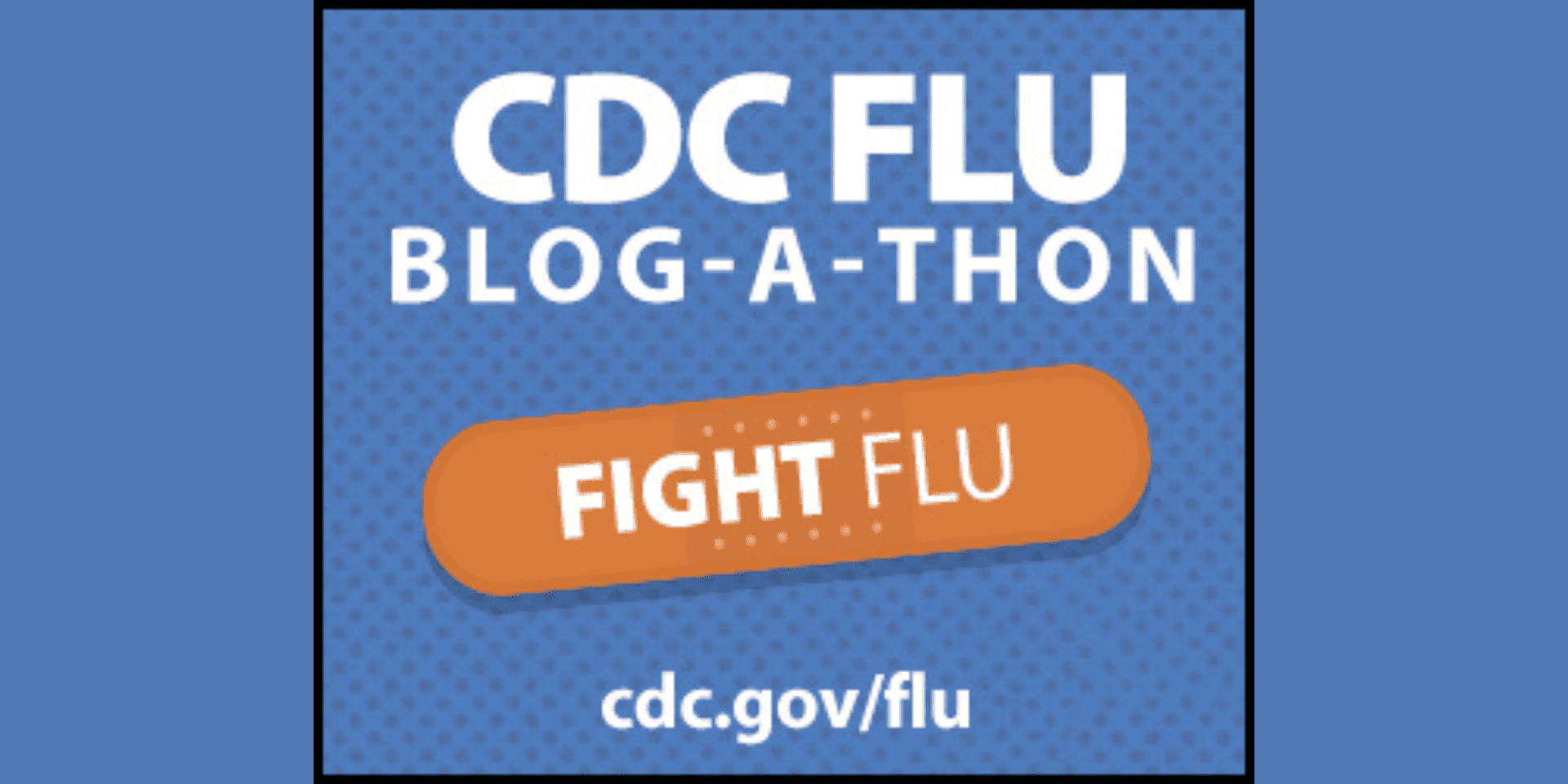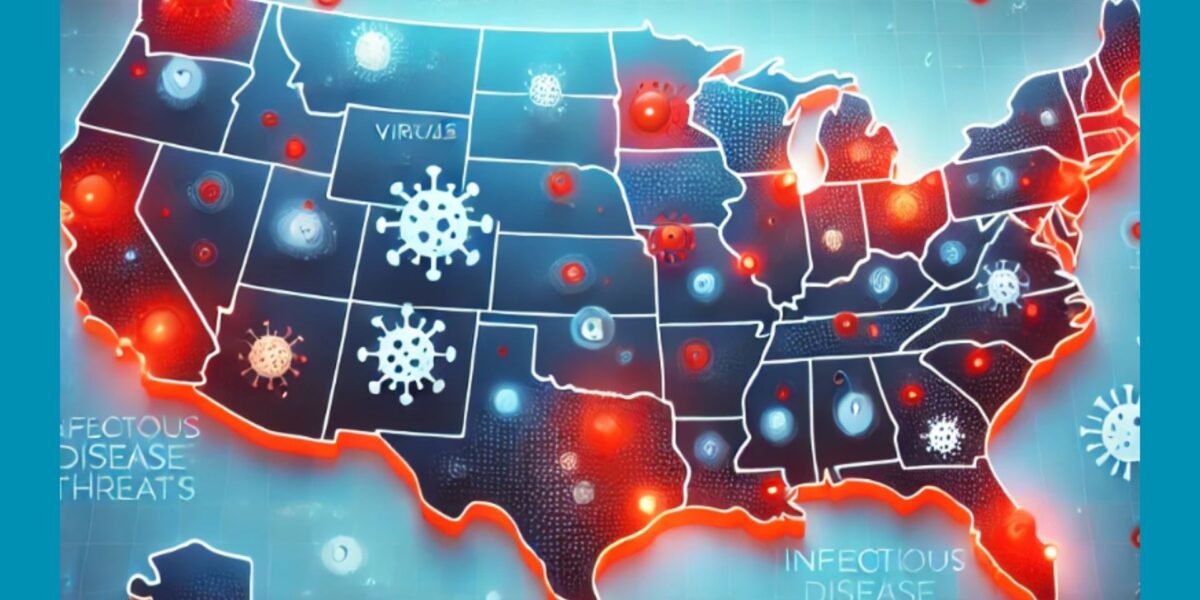

Special thanks to Patricia (Patsy) A. Stinchfield, RN, MS, CPNP, CIC, Pediatric Nurse Practitioner at Children’s Minnesota and NFID Secretary, for this NFID guest post as part of the CDC #FightFlu Blog-a-Thon about the importance of annual flu vaccination.
Each year in the US, influenza (flu) season can begin as early as August and continue through April or even May, with activity typically peaking between December and February. It is particularly important to get vaccinated before flu starts circulating in your community. The Centers for Disease Control and Prevention (CDC) recommends getting an annual flu shot by the end of October; however, getting vaccinated throughout the flu season, even in January or later, is still better than not getting vaccinated at all.
Here are 10 important things you should know about protecting yourself against flu during the 2017-2018 influenza season:
- CDC recommends that all individuals 6 months and older get a flu vaccine every year. Flu vaccination can keep you from getting sick, prevent you from missing work and school due to flu, prevent flu-related hospitalizations, and can also protect those around you who are more vulnerable to serious flu illness.
- Flu vaccination is especially important to protect those at high risk of serious flu complications, including very young children, pregnant women, individuals 65 years of age and older, and those with certain long-term medical conditions like asthma, diabetes, or heart disease. A recent study in Pediatrics showed that flu vaccination significantly reduced a child’s risk of flu-associated death by half among children with underlying high-risk medical conditions and by nearly two-thirds among healthy children.
- Don’t delay! Get vaccinated as soon as flu vaccine becomes available in your area, ideally before flu starts spreading in your community. Flu vaccines are now available in many convenient locations.
- Individuals are much more likely to get a flu shot when it is offered or recommended by a healthcare professional. View tips to help make a strong recommendation.
- Following vaccination, it takes about two weeks for antibodies to develop in the body and provide protection against the influenza virus. Additionally, children between 6 months and 8 years of age require two doses of influenza vaccine if they are getting vaccinated against flu for the first time or have previously received only one dose of vaccine in prior seasons.
- To best protect yourself, you need to get a flu shot each and every year. Flu viruses may change each season and immunity decreases. The formula of the flu vaccine is reviewed each year to keep up with changing flu viruses.
- There are many types of flu vaccines available for the 2017-2018 flu season. Talk to a healthcare professional about which flu vaccine is best for you. If a specific flu vaccine isn’t available in your area, get vaccinated with any available flu vaccine. Note that the nasal spray vaccine is not recommended for use in the US this season based on concerns about its effectiveness.
- You can spread flu viruses 24 hours before you begin to show symptoms. Common flu symptoms include fever, aches, chills, and extreme tiredness, with sudden onset.
- The more people who are vaccinated, the more protection there will be in a community to prevent the spread of flu. This is referred to as ‘community immunity’ (or herd immunity) and helps protect those that cannot receive flu vaccine including infants younger than six months of age. Flu shots given during pregnancy have been shown to protect both mothers and babies from flu, for several months after birth.
- The flu shot cannot cause the flu! Flu shots are made with inactivated (or killed) viruses and are therefore not infectious, or with no flu vaccine viruses at all (recombinant vaccine). Flu vaccines are safe and effective and are the best way to help #FightFlu!
Remember, as long as flu is spreading, it’s not too late to vaccinate! To view weekly influenza estimates by state, visit the CDC Weekly US Map: Influenza Summary Update.
Mark your calendars for Monday, December 4, 2017 at 1:00 PM ET for the Twitter #FightFluChat hosted by NFID, CDC, and SeattleMamaDoc during National Influenza Vaccination Week.
To join the conversation, follow NFID on Twitter using the hashtag #FightFlu, like NFID on Facebook, follow NFID on Instagram, join the NFID Linkedin Group, and subscribe to NFID Updates.
Related Posts

News Round-Up: Infectious Disease Threats
According to NFID website poll, there are several worrisome infectious disease threats. Read recent news on topics of greatest concern, including avian influenza (bird flu), measles, and respiratory syncytial virus (RSV) …

Vaccines and Heart Health: A Vital Connection
Heart disease can increase the risk of serious or fatal complications from respiratory diseases including COVID-19, flu, and RSV

Harnessing the Power of Local Data
NFID dashboard aims to empower stakeholders with hyperlocal data to increase US adult respiratory vaccine uptake
